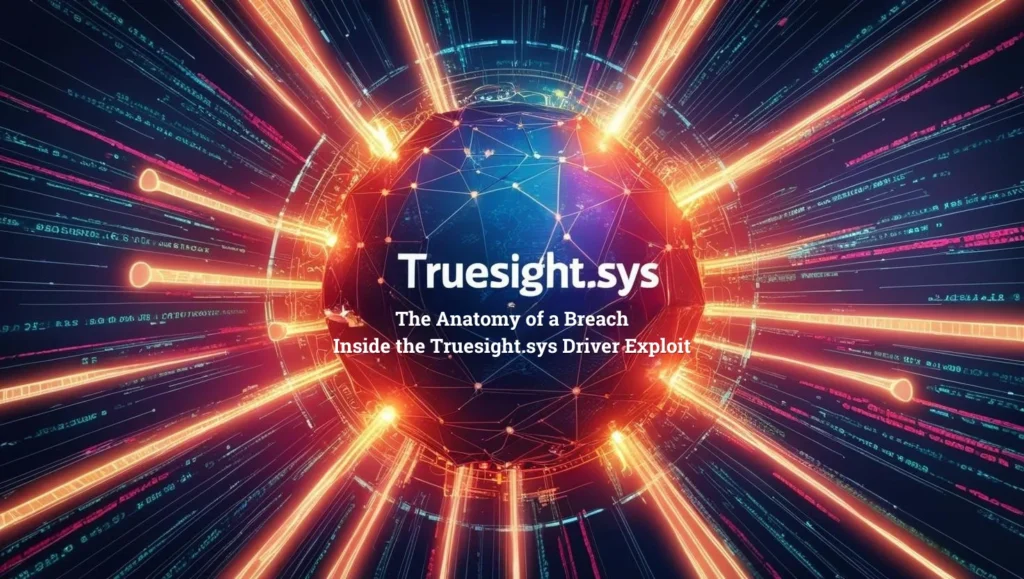GDPR in the United States: A Do or Die Situation for Businesses
The necessity of GDPR in the United States extends beyond legal compliance, offering American businesses a valuable opportunity to build trust with consumers and strengthen their data governance frameworks. Get ready to uncover how embracing GDPR can safeguard your reputation, avoid costly penalties, and future-proof your business against the evolving landscape of privacy regulations. This is more than just a legal obligation—it’s your blueprint for success in the digital age!
In This Article:
- Introduction to GDPR (General Data Protection Regulation)
- Why GDPR is important for businesses in the United States
- Impact of the GDPR on data protection and privacy laws in the U.S.
- Key provisions of the GDPR and how they differ from U.S. laws
- Compliance with GDPR: Steps businesses need to take
- Benefits of implementing GDPR principles for businesses
- Challenges and criticisms of the GDPR
- Conclusion: The future of data protection and privacy regulations

Introduction to GDPR (General Data Protection Regulation)
In today’s digital economy, data is a central asset for businesses. As U.S. companies grow their online presence and engage with global customers, understanding data protection laws, especially the GDPR (General Data Protection Regulation), is critical. GDPR, a European regulation, has redefined how personal information is managed, impacting businesses worldwide, including those in the U.S.
But what does GDPR mean for businesses in the U.S.? With growing concerns over privacy breaches and data misuse, many organizations are navigating a complex maze of compliance requirements. Ignoring these regulations could result in hefty fines and reputational damage.
This blog will explore why GDPR matters for American enterprises, its implications on existing U.S. data laws, key provisions that differ from U.S. standards, steps for compliance, and the advantages of adopting these principles—even if your business isn’t based in Europe. Join us as we unravel the intricacies of this vital regulation and its influence on future privacy practices!
Why GDPR is important for businesses in the United States
The rise of digital data has changed the business landscape in significant ways. For U.S. companies, understanding GDPR is not just an option; it’s a necessity.
Many American businesses operate internationally and handle data from EU citizens. Non-compliance can lead to hefty fines that may cripple smaller organizations. The potential for damages under GDPR puts pressure on companies to prioritize data protection.
Moreover, adopting stringent privacy practices fosters trust with customers. In today’s market, consumers are increasingly aware of their rights regarding personal information. Meeting GDPR standards can enhance your brand reputation and customer loyalty.
As conversations around privacy regulations continue in the U.S., being proactive could position companies favourably ahead of future legislation—making compliance with GDPR relevant even beyond its immediate requirements.
Impact of the GDPR on data protection and privacy laws in the U.S.
The GDPR has significantly influenced how data protection and privacy laws are approached in the United States. It set a high standard that many states now aspire to achieve. As businesses grapple with compliance, they often find themselves reevaluating their existing policies.
This shift is evident in legislation like the California Consumer Privacy Act (CCPA), which incorporates elements reminiscent of GDPR principles. The CCPA enhances consumer rights regarding data access and deletion, reflecting a growing trend toward stronger protections.
Moreover, U.S. companies that operate internationally must align with GDPR requirements or face hefty fines. This compels them to adopt more rigorous data governance frameworks and transparency measures across all operations.
As states consider new privacy laws, the influence of GDPR will likely shape discussions on consumer rights and corporate responsibilities for years to come. This evolving landscape underscores the importance of understanding global standards while navigating local regulations.
Key provisions of the GDPR and how they differ from U.S. laws
The GDPR introduces several key provisions that emphasize individual rights and organizational responsibilities. One standout element is the explicit requirement for obtaining consent before processing personal data. This differs significantly from many U.S. laws, which often rely on implied consent.
Data subjects also enjoy enhanced rights under the GDPR, including the right to access their information and request its deletion. While some U.S. regulations offer privacy protections, they tend to be sector-specific and lack uniformity across states.
Moreover, organizations must appoint a Data Protection Officer (DPO) if they process large amounts of data or handle sensitive information regularly—an obligation not typically found in U.S. legislation.
The penalties for non-compliance are steep under GDPR, with fines reaching up to 4% of global annual revenue—a stark contrast to most American laws where consequences are less severe and more fragmented.
Compliance with GDPR: Steps businesses need to take
To achieve compliance with GDPR, businesses should start by assessing their data practices. Conduct a thorough audit to understand what personal data is collected and how it’s used.
Next, develop a clear privacy policy that outlines your data processing activities. This document must be accessible and easy to understand for users.
Training staff is crucial. Ensure everyone understands the importance of GDPR and knows how to handle personal information appropriately.
Implement robust security measures to protect sensitive data from breaches. Regularly update these systems as technology evolves.
Establish protocols for handling data subject requests, such as access or deletion requests. This creates transparency and builds trust with customers.
Consider appointing a Data Protection Officer (DPO) if necessary. A DPO can guide compliance efforts and facilitate ongoing adherence to regulations.
Benefits of implementing GDPR principles for businesses
Implementing GDPR principles offers numerous advantages for businesses. Enhanced customer trust is one of the most significant benefits. When customers see that a company prioritizes their data privacy, they are more likely to engage and remain loyal.
Another key benefit is improved data management. Adopting GDPR practices encourages organizations to review their data collection processes, leading to a streamlined approach that can save time and resources.
Regulatory compliance also brings financial perks. Companies demonstrate accountability by adhering to GDPR requirements, potentially avoiding hefty fines associated with non-compliance.
Moreover, embracing these principles fosters a culture of security within the organization. Employees become more aware of data protection measures, creating an environment where everyone takes responsibility for safeguarding sensitive information.
Incorporating GDPR guidelines can even enhance a business’s reputation on a global scale. As international consumers become increasingly vigilant about privacy rights, showcasing compliance becomes a competitive edge in the marketplace.
Challenges and criticisms of the GDPR
The GDPR, while groundbreaking, faces significant challenges. Many businesses argue that compliance with GDPR can be complex and costly. Smaller organizations often struggle to allocate resources for the extensive requirements.
Critics also point out that the regulation’s ambiguity leaves room for interpretation. This uncertainty can lead to inconsistent enforcement across different jurisdictions.
Another concern is the potential stifling of innovation. Companies may hesitate to develop new technologies or services due to fear of non-compliance with stringent rules surrounding data usage.
Additionally, some experts argue that GDPR’s heavy penalties—often referred to in discussions about GDPR and fines—could disproportionately impact smaller firms compared to larger corporations more equipped to handle regulatory stressors.
There are debates about whether the regulation effectively protects user privacy in an increasingly digital world filled with data-sharing practices.
Conclusion: The future of data protection and privacy regulations
The landscape of data protection and privacy regulations is evolving rapidly. As businesses increasingly operate in a global market, the need for robust frameworks like GDPR becomes clear. U.S. companies that handle personal data from EU citizens must embrace compliance with GDPR, which not only safeguards consumers but also enhances corporate reputation.
As we look ahead, it’s crucial for organizations to stay informed about changing laws both domestically and internationally. The growing trend toward stricter privacy regulations suggests that the United States may adopt similar measures inspired by GDPR principles or even strengthen existing laws like CCPA.
Businesses should prepare now by developing comprehensive strategies around requirements for GDPR compliance and creating detailed GDPR privacy policies to ensure transparency with customers. This proactive approach can mitigate risks associated with potential gdpr fines while fostering trust between stakeholders.
A well-informed business will navigate this intricate web of rules effectively, adapting quickly as new developments arise in the realm of data protection and privacy rights worldwide. Embracing these changes could very well position them at the forefront of responsible digital practices moving forward.
Contact info
- 3rd Floor, 86-90 Paul Street, London, EC2A 4NE, UK
- +44-2034880245
- hello@onsecc.com
Share Blog On
Recent Posts:
-
 Cyber Insurance for Small Businesses: What You Don't Know Could Cost You Everything
Cyber Insurance for Small Businesses: What You Don't Know Could Cost You Everything -
 Meet AkiraBot: The AI Spam Demon Haunting 420,000 Websites (and Counting)
Meet AkiraBot: The AI Spam Demon Haunting 420,000 Websites (and Counting) -
 2,500 Faces of Deceit: The Proliferation of Malicious Truesight.sys Variants
2,500 Faces of Deceit: The Proliferation of Malicious Truesight.sys Variants -
 Zero-Day Vulnerabilities: The Invisible Threat Redefining Cybersecurity
Zero-Day Vulnerabilities: The Invisible Threat Redefining Cybersecurity -
 The Middle East’s Cybersecurity Gap: Building Defenses for a Digital Future
The Middle East’s Cybersecurity Gap: Building Defenses for a Digital Future -
 The Cost of Non-Compliance: What the TfL Cyber Attack Teaches Us
The Cost of Non-Compliance: What the TfL Cyber Attack Teaches Us -
 GDPR in the United States: A Do or Die Situation for Businesses
GDPR in the United States: A Do or Die Situation for Businesses -
 Is Your Business PCI Compliance Certified? Don’t Risk It!
Is Your Business PCI Compliance Certified? Don’t Risk It!
FAQs
GDPR (General Data Protection Regulation) is a European law designed to protect personal data. U.S. businesses that handle data from EU citizens must comply to avoid fines and strengthen their data protection frameworks.
Yes, if your business collects or processes data from EU citizens, GDPR applies to you, regardless of your location.
Complying with GDPR builds customer trust, enhances data security, and helps businesses avoid significant fines for non-compliance.
Start with a data audit, update your privacy policies, train staff on data protection, and implement strong security measures. Onsecc can guide you through the process.
GDPR is more comprehensive, offering stricter protections on personal data, while U.S. laws like CCPA focus more on specific aspects, such as data access and deletion rights.





